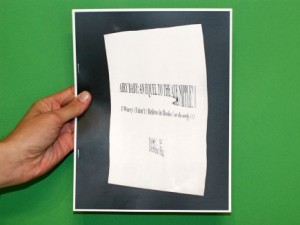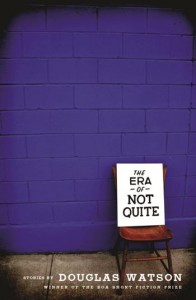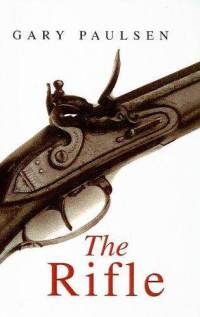I Hope You Feel Better

Studies have shown that the internet makes people feel bad. That these studies are almost always read online would make, you would think, one feel better. But the internet—where delusion and projection join hands in violent democracy—is also a reprieve from the horrible real world. It’s a viscous cycle. As an idle masochist, I often visit Dwell to “keep up” with all the confidently sparse modernist homes lived in by well-adjusted designer type-A people. Europeans, vegetarians, zombies of good fortune. We assume the owners are at a party, symphony, gala, or fundraising, letting light fall upon their absence in the quiet glory of their restrained taste. I also habitually visit J. Crew, at times to browse the Mens’ section for items that won’t make me taller, but mainly to check out all the beautiful women I have no chance dating. The Abercrombie & Fitch girls seem inbred, and the Prada models look anemic, ridden with some disease. J. Crew does a great job at consolidating the yuppie, bougie, slightly artsy and bohemian looks very well, with a touch of polite hipster, into the perfect interesting-but-not-crazy woman. They are dream girlfriends. I’m talking a handjob at a Philip Glass concert. I’m talking photoshop.
“Between my finger and my thumb
The squat pen rests.
I’ll dig with it.”
(Seamus Heaney)
AIRY BABY: AN EQUAL TO THE ATE NIPPLE?//I worry/I don’t/Believe in Books/or do owly///
 AIRY BABY: AN EQUAL TO THE ATE NIPPLE?//I worry/I don’t/Believe in Books/or do owly///
AIRY BABY: AN EQUAL TO THE ATE NIPPLE?//I worry/I don’t/Believe in Books/or do owly///
by Debbie Hu
Perfect Lovers Press, 2013
Edition of 100 / $5 Buy from Perfect Lovers Press
Debbie Hu wants you to think about baby, but all I can think about is what baby means for poetry. Mac Low starts off his 17th dance with the realization/instruction, “Someone has a baby or seems to have one.” Yes, obviously, we are always having some kind of baby. Notley—to whom Hu gives a much necessary shout out—once questioned, “Do you think women & men have kids in order to become immortal?” Why baby and why now? Are we making baby or is baby making us? Is it baby or the process of baby? Poets used to have babies now they have the Internet. Poets today let their babies do unfathomable things and leave their tiny baby lives in shambles. Contemporary Poet Jennifer Pieroni’s baby is primarily unlucky. In “Unlucky Babies,” she locks her baby out of the car and does not even allow for it to learn to type. Contemporary Poet Chelsey Minnis puts her baby on secret trial: “A baby on 9/11 was definitely in love with me and the parents did not know.” Hu’s baby lives in a similar place. It is part voyeur, part chauffeur, and part Gucci waiting in the wings. She writes:
the baby writing
machine, uploading a picture of herself on the internet, looking suburban.
Baby tries hacking her
relationships with words like love letters like the write combination will
crack the chains & change
a mind & minor upheval. But the effects are weird on the heart. So baby
goes back to writing
words for baby eyes only.
Hu’s baby has been taught to type because Hu’s baby is sometimes herself. Most often, though, baby is more of a symbolic bystander than a conduit. Baby is not always the most important thing but this book seems to be baby’s own creation. Perhaps it would be best to say that Airy Baby, is a kind of intertextual baby book; for the gentle omnipresent-omniscient baby, there is Ke$ha. There is charming organizational risk AKA formal chaos. There is the political as it battles with the personal. There is Cantonese then New Zealand. There are penises or shame. The narrative voice is distinctly cohesive yet polyvocal in a very necessary way.
Hu switches between the hyper casual and the “large idea” casual. She goes from “I wore a candy stripe dress / To the General Assembly and my pleaseface until I / Become a pop star my pleaseface is a dontrapeme pleaseface becuz / stay away my cunt smells terrible” to “it wounds me to read that she craves solitude and no / accountability, I feel like I am all despicable money” in just one page. She is sometimes Gurlesque transgressive in a blunt way like Ariana Reines, but most often a very idealistic type of gross-delicate, something that makes me think of Jenny Zhang’s first collection. Feng Sun Chen, from whom Hu quotes extensively, also comes to mind.
While very much composing a “poetry” book, the pieces are sometimes epistolary fragments and other times stolen bits from the pages of some tangentially yet brilliantly related thing. Airy Baby has titled sections, but they’re largely irrelevant; demarcations and page numbers become nobody’s business. Pieces start and stop wherever they’d like—pick back up then quit again. Baby, itself, operates similarly, waiting in the background for its opportunity to be the savior or the disgrace. To be the distraction. Baby is present for pages then not at all; it vanishes.
There are epiphanies laced throughout but, much like the emotional content of the book, these realizations are muted. The writing is laced with a certain sense of overwhelming comic unhappiness—the kind of thing that surfaces with any period of introspection. Hu jokingly alludes to David Foster Wallace in the book’s preface, and, like Wallace, uses footnotes to distract and “confuse” the reader. Here, though, it would seem that Hu employs these asides to soften the intensely emotional or personal. We are always returning to humor because humor is the only way to comprehend humanity.
August 30th, 2013 / 11:05 am
The Era of Not Quite by Douglas Watson
 The Era of Not Quite
The Era of Not Quite
by Douglas Watson
BOA Editions, May 2013
160 pages / $14 Buy from Amazon or BOA Editions
What’s the point of reading a book when, regardless of the book’s brilliance, you’ll still eventually end up dead? In his award-winning debut collection of twenty-three fabulist fictions, The Era of Not Quite, Douglas Watson takes up this question by knocking off characters left and right. In one story, Watson tosses a luckless schmuck into the void. In another, he flattens a thoughtful library patron with a dump truck while the patron’s daughter contemplates wonder. In the penultimate tale, a seven-year-old girl, poor dear, is bucked from a newly invented breed of miniature horse. Deaths stack up, morbidity becoming its own joke as nihilism loops back on itself again and again. The result is absurdity, hilarity, heady contemplation, and killer prose.
Of course, there’s nothing like a good literary offing to cleanse the palate, and this book offers deaths galore. But Watson’s stories run deeper than clever premises and guillotine giddiness. In this first book, winner of the BOA Short Fiction Prize, Watson adds his unique voice to postmodernism, joining the ranks of Barthelme, Beckett, and Calvino and holding his own. With playful experimentation and linguistic prowess, Watson mocks the conventions of fiction, making us wonder what stories really are for in this post-literate era when the masses can read but literacy fails to deliver us from unexceptional lives. Before you can lose hope, though, Watson shifts away from farce, showering us with moments of linguistic sublimity that remind us why fiction endures.
Watson drops us into folkloric lands of kings, wolves, and dragons as readily as he places us in nondescript contemporary landscapes of billboards, busses and, yes, libraries of all things. Then there are stories where Watson muddles time, inserting props from commercial culture into the sparse world of the fable. Take the story “When the World Broke,” where a golden-haired peasant boy living in a remote village on the edge of a forbidding forest fills a water bottle—ubiquitous thing—before slinging a bag of oats over his shoulder and venturing off through valleys lit by thousands of electric lights on a quest to save his beloved ailing mother and the world. It’s as though Watson is saying, hey, this is the realm of fiction, an artificial space, no? Fairy tale setting? Depressingly realist small town complete with Unitarian church? What’s the difference when neither really exists in a book?
Into these confused and anachronistic settings, Watson focuses his gaze on down-and-out characters, friendless, discouraged, but not without hope. Take Hal Walker from Watson’s title story “The Era of Not Quite”:
August 30th, 2013 / 11:05 am
THIS SEPTEMBER ISSUE: TWELVE REASONS TO CHOOSE HARPER’S
THE BRIEF HISTORY OF HARPER’S CLUB
Six days ago I received an email with the subject: “HARPER’S MAGAZINE RENEWAL.” The line of argumentation the email included was constructed by the magazine’s “Circulation Director.” I never read it, because I believe everything it said: I didn’t need to be persuaded in regards to the absolute necessity of my continued subscription. [1]
The motive that initially made me subscribe to Harper’s was my desire to intellectually engage on a more personal level with a friend from college, Dan. We both agreed that the depth of our homosocial rapports was not adequately profound, and because we enjoyed discussing with one another we eventually came up with the idea of what we jocularly referred to as “Harper’s Club.” [2] Dan’s academic interests were very different than mine, but we both enjoyed challenging various points of view in our pursuit of forming an informed opinion.
The planning of The Club’s meetings became impossible and our friendship never deepened. Regardless of this failure I could not be happier for the epiphenomenal ramifications of our failed initiative. By encouraging me to think about familiar subjects in different ways, “Harper’s Club” regularly challenged me as a thinker. This held true even when I was the solitary member of the Club, and continues to be valid to this day. Every time a new issue arrives in my mailbox I expect to encounter articles that serve this mission. My expectations are pleasantly surpassed consistently.
THOUGHTS ON ADS (ATTN: MIGHT BE FEELINGS!)
who, amongst us writers, is the greatest Tweeter ?? Mark Leidner, Blake Butler, Melissa Broder, Patricia Lockwood, and Rauan Klassnik (ha ha) are all GREAT Tweeters–
but if I had to name just one it would be Russel Swensen (Scribbly Mouse)–
whatcha say ???
25 Points: The Rifle
 The Rifle
The Rifle
by Gary Paulsen
Laurel-Leaf Books, 1995
105 pages / $6.29 buy from Amazon
1. For my fifth grade class, Gary Paulsen was considered the pinnacle of literary merit. Second only to R. L. Stine.
2. Most people I talk to remember reading Paulsen’s novel Hatchet pretty well, but I’ve yet to meet anyone who remembers The Rifle.
3. The Rifle is about a man who carves a muzzle-loaded rifle out of a tree branch and spends a long time on it. He then sells it to a Revolutionary War soldier who dies of dysentery after killing a lot of British officers. Then an old man buys the rifle. He’s lonely and his life sucks, and the boy who lives across the street’s life is lonely, too. The boy’s dad is a trucker and doesn’t care about him. Then the man’s gun accidentally fires and kills the boy.
4. I lied about that.
5. I think in my memory I joined this novel with another novel that I read that same Summer as a kid. I dreamed an entire subplot about the little boy and his relationship with his trucker dad, writing him postcards and eating ice cream.
6. I think that book was written by Beverly Cleary.
7. She was pretty well liked in my grade school, too.
8. Here’s the real plot of The Rifle:
9. The book is even sadder than I remembered.
10. The muzzle-loaded rifle was made by a dedicated gunsmith and he did sell it to a sharpshooting soldier, but after the soldier dies of dysentery, the gun is stuck in an attic until a guy finds it and sells it to a dude at a gun show. The gun show dude is your stereotypical stand-yer-ground-pry-em-out-of-my-cold-dead-hands- lives-in-a-van-off-the-grid-type dude. This gun guy drinks a lot of beer and the omniscient narrator tells us that later he gets stomach cancer and dies. This stomach cancer guy’s van breaks down and he trades the rifle and an Elvis painting on velvet to a mechanic for van parts. The mechanic takes both the gun and the painting home and places them on his mantel. Then one day, he’s lighting a fire in the fireplace and a spark from the fire lights some old powder in the gun and it goes off and the bullet flies through the house and kills a little boy who lives across the street. Then the novel discusses how the loss of the little boy’s life ruins everyone else’s lives. READ MORE >
August 29th, 2013 / 2:28 pm
Will Hill
Scott McClanahan’s Hill William book trailer is here, lit world.
YOUR MOVE, JOYCE CAROL OATES.
The Strange and Dirty Beauty of Hudson NY
Swallow, a coffee shop located on Warren Street, has either the feel of just opening or just burglarized. It’s a disarming effect – the space is wide open with minimal furniture, the walls a fresh coat of white paint, and there’s a record player swamped in trash at the back playing soft noise, like fire crawling across the floor and around your feet. They serve Stumptown Coffee and the workers act like they don’t give a fuck. On a recent day trip from our home thirty minutes north, my wife got into line and Malcolm Gladwell was three people behind her. Before we left, I asked her if she saw Malcolm Gladwell and she said yes, and asked me if I saw the guy from Grey’s Anatomy, and I said no, was it McDreamy?


